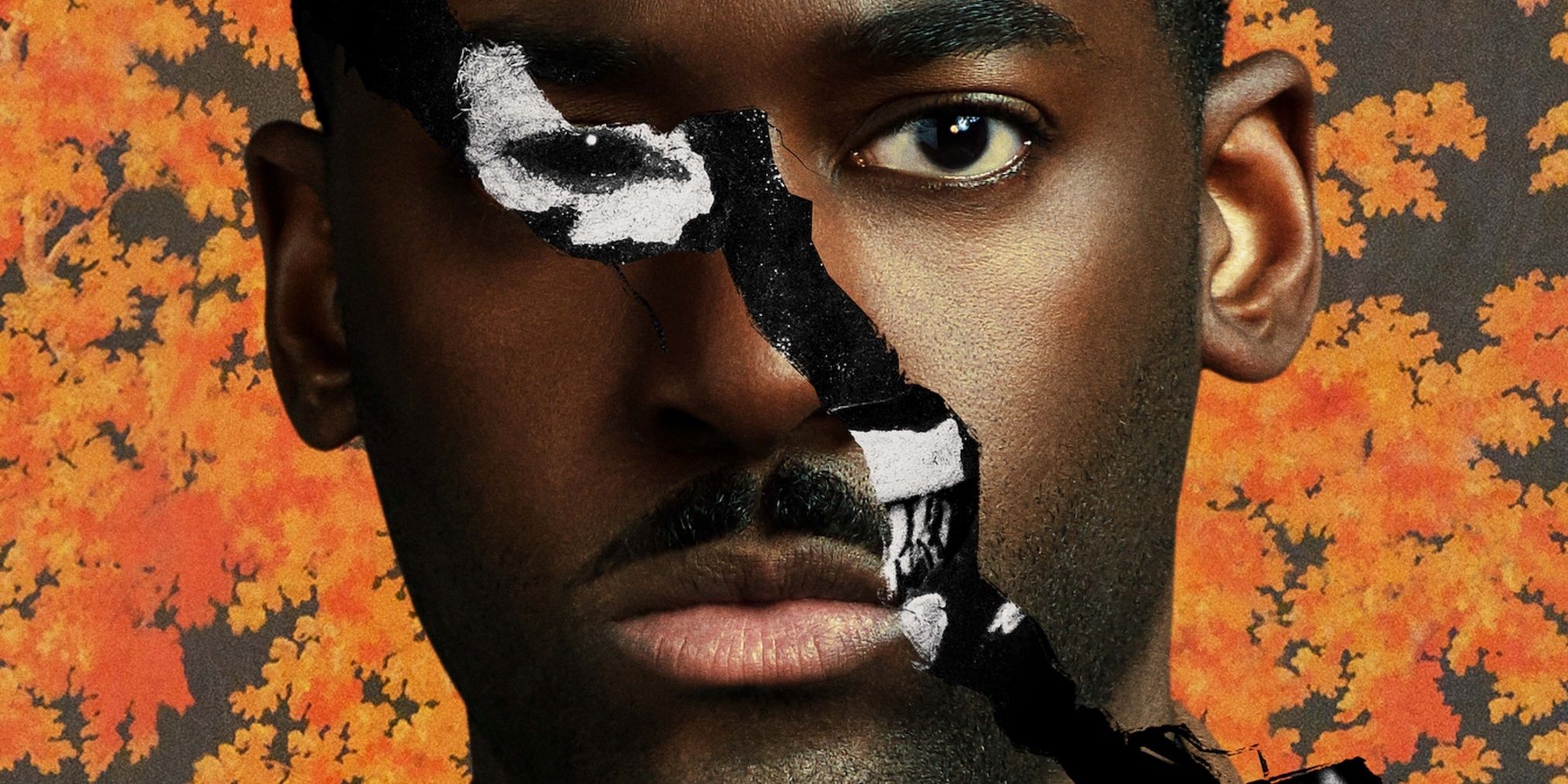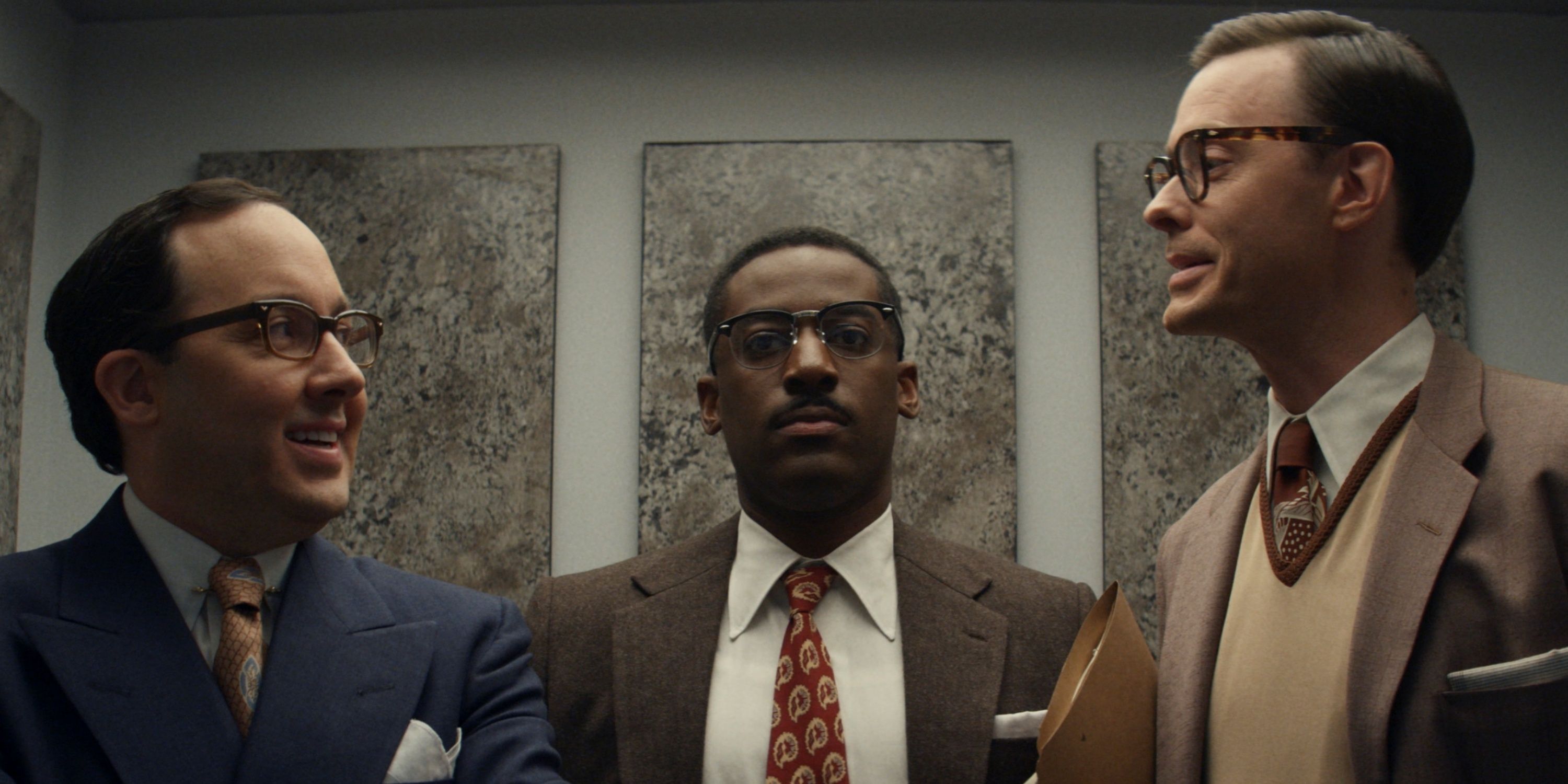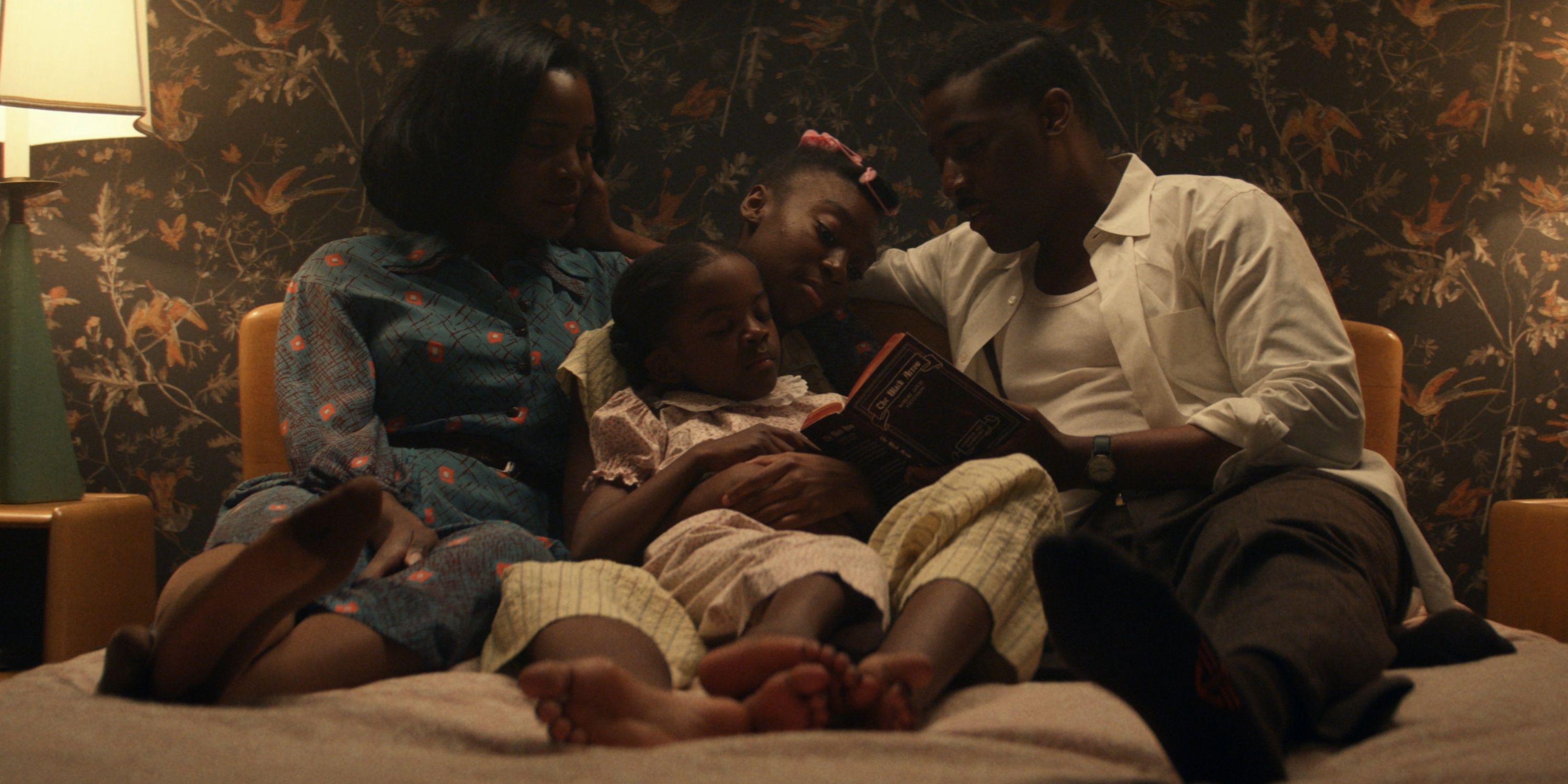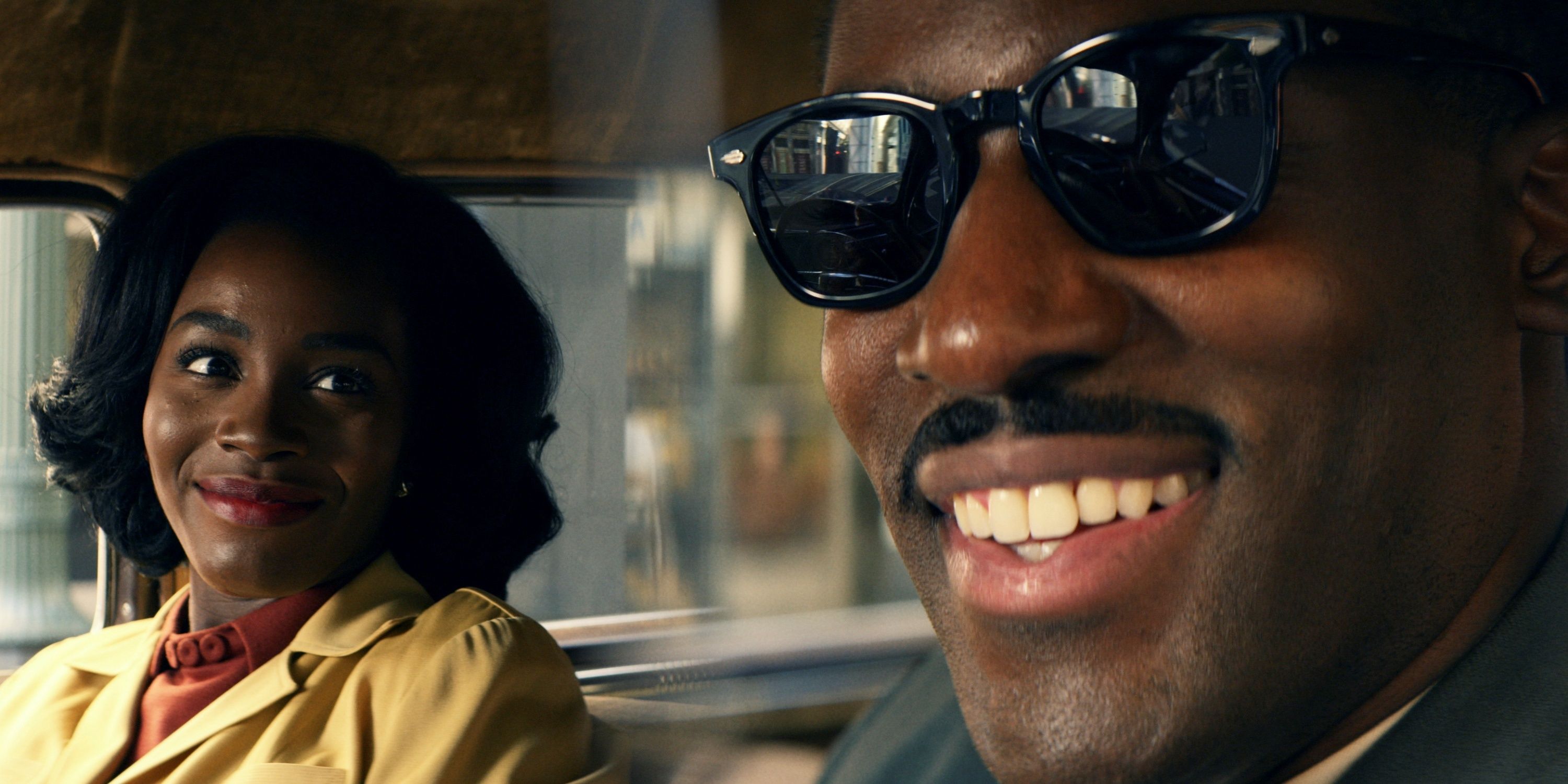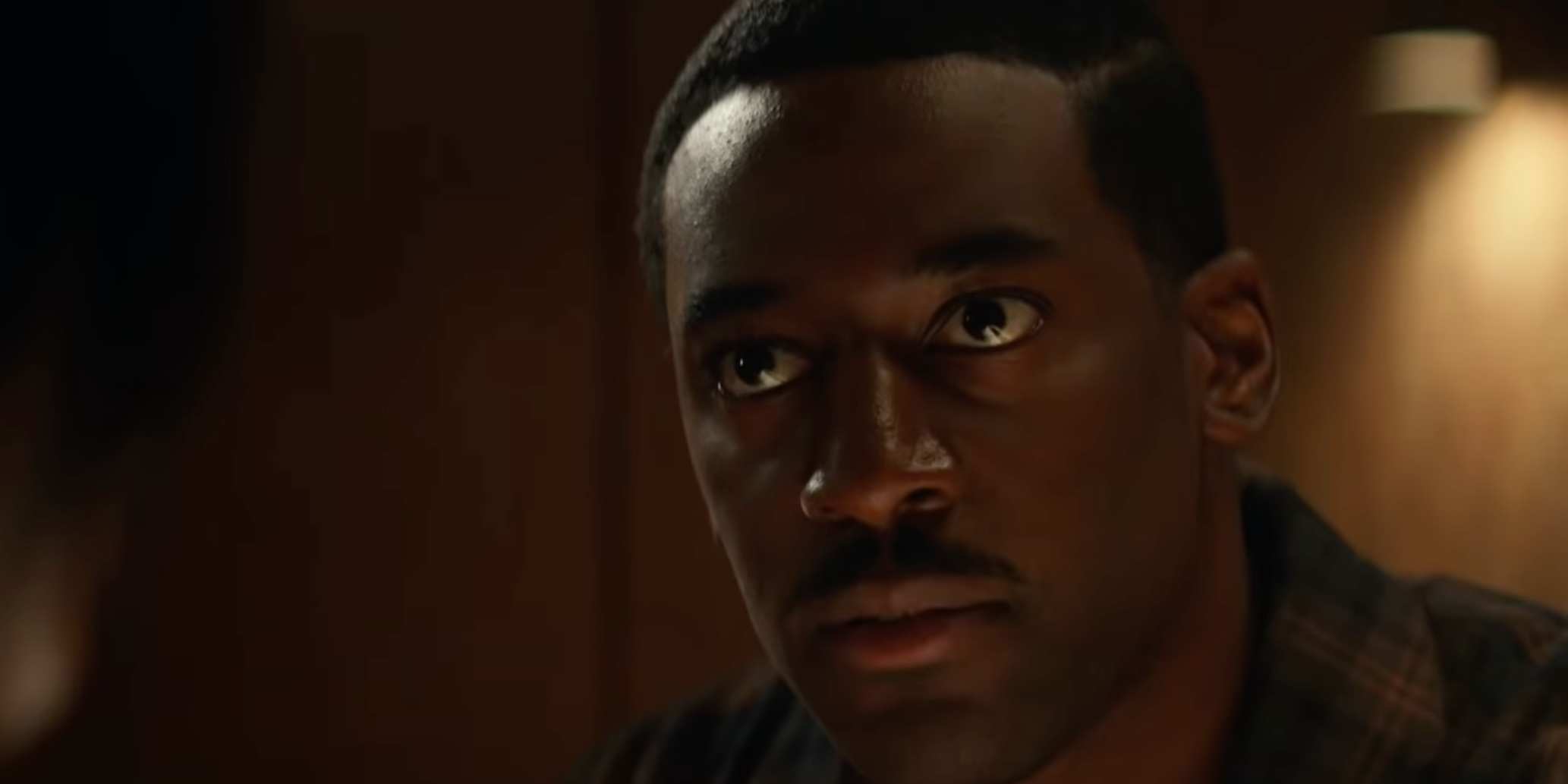[Editor's note: The following contains spoilers for Them.]
From creator Little Marvin, the first season of the Amazon Studios original anthology series Them is set in the 1950s during The Great Migration when a Black family – Lucky (Deborah Ayorinde) and Henry Emory (Ashley Thomas), and their two daughters, Ruby (Shahadi Wright Joseph) and Gracie (Melody Hurd) – move from the South into the all-white neighborhood of Compton. While otherworldly malevolent forces threaten the family, it is the actions of their next door neighbors who will go to any lengths to protect their way of life as they know it that are far more dangerous.
During this 1-on-1 phone interview with Collider, Thomas talked about how powerful he thought this story was, his desire to do the piece justice, where he got the inspiration for this performance, bonding as a family, what most impressed him about the young co-stars who played his daughters, his hope that we’ll get to a place of equality, and what he’s doing next.
COLLIDER: When this initially came your way, what was the pitch for what it would be? Before you got to read any of it, what were you actually told about it?
ASHLEY THOMAS: Nothing, really. I just got a small synopsis and was told it was a horror set in the 1950s about a family that moves from the South to the west coast of Los Angeles. That’s all I had. And then, I auditioned and I heard there was some interest, so I got sent the scripts to read. When I read it, I thought it was amazing and powerful. I was actually quite scared of the piece, just the weight of it. It’s a very important African American story, which is essentially an American story. I just wanted to make sure that I could do the piece justice. I didn’t even know whether I wanted to audition for it. That’s all I knew. And then, when I read it, I had an understanding of what it was.
Little Marvin has said that your audition was so profound that he found himself sobbing. Did you know that? What did you do in that audition?
THOMAS: Yeah, he was moved in the audition. I just didn’t know. I was so in the character in the audition, but I was so nervous at the same time. It’s a strange environment when you’re doing a screen test. I was going through emotions as the character and emotions as myself, Ashley. He told me that, if I needed, I could leave the room for a second and get myself together. When I did that, he came outside and was like, “As far as I’m concerned, the part is yours. I just want you to know that.” I took that with a grain of salt because it was just an audition, but he was dead serious, man. He said he saw me as Henry from the beginning.
This story is terrifying, it’s horrific, it’s heartbreaking and it’s really important, but it’s not easy to watch. Were you fully aware of what you were getting yourself into, emotionally and physically, by signing on for this, or were there times where you wondered how you were going to get through a scene?
THOMAS: I didn’t really know, to be honest. I didn’t have all 10 episodes at once. There was a character arc, but I didn’t know everything because they were writing it. I just wanted to make sure that I could do the piece justice and access all the layers of the character and bring additional layers to the performance. I wanted to take what Little Marvin wrote, which was already amazing, and just make sure that I tried to meet that level and take it beyond. I wanted to add additional layers and nuances to the process. What was helpful was that I met a man who lived in my building, who was an older gentleman. I think he was in his 70s, and he grew up in Texas under Jim Crow. He was telling me his experiences and that was helpful to me because I got to hear firsthand what our people were experiencing at that time. I was able to use myself and channel his experiences to inform the character. That was very helpful. And I read a book by Josh Sides, called City Limits, which was very helpful. It was very specific to Los Angeles and spoke about the African American migration from the Great Depression to the modern day, and that was helpful because it was specific to Los Angeles. I spoke to friends who lived in America, and that was helpful because they were sharing their experiences. And then, I have my own experiences just being a Black man in the world. Some of those things I could extrapolate into the character, and then some of those experiences I had to learn. The African American experience is a unique one, so I just needed to make sure that I had done the work to bridge the gap in my understanding.
There is so much identifiably racist imagery in this, with the behavior and language, the use of the N-word, the references to apes, and all of the Blackface imagery. What did you find most difficult to deal with, on a personal level?
THOMAS: On a personal level, it was making sure that I took responsibility for the characters. It’s not about me, it’s about the character, so it was just making sure that I was fully in the characters and exercising a level of restraint that we don’t probably have today. It was a different time, where it was the difference between life and death. It was just making sure that I had that I was playing that authentically and making sure that I was putting my mind in the state of 1953, where you were having to be so conscious of every single thing that you say and every piece of your body language. I didn’t want to bring Ashley to the character. I was very conscious of the time because it’s very different. It’s very easy to say, “Oh, I would react like this,” but you wouldn’t because there were different things going on and different pressures.
Once you had learned about how this season would end and you learned about where everything was leading, what was your reaction to that? How did you feel about the way this ended and where things are left in the story by the end of the season?
THOMAS: By the end of the season, I was happy to see that the Black family had stuck together and essentially overcome. It was showing the unity between the husband and wife, and we saw this love between these two people that we don’t often see depicted in the media. For me, just the fact that the family were able to survive and be strong together, that was what was what I was very proud of, in terms of the overall ending of the story.
Did it help you to get through this because it wasn’t just you going on this journey, but you had your co-stars and this little family that you had formed?
THOMAS: Yeah. It was tough knowing what I was going through, but also knowing what Deborah [Ayorinde] had to experience throughout the process and the little girls, who were so young, to have to go through it. There is generational trauma that we have as people, so you just don’t know what these experiences are gonna evoke and what it’s gonna bring up in you, emotionally. It was tough. We would try to make sure that we went out and spent time off set together, and did things that were uplifting and positive, so that we were staying connected off the set as well. Sometimes we were together experiencing these things, but sometimes we were in our own scene experiencing things and you don’t know what they’re going through. You only really get to see it when you watch the piece.
So much is required of the two young girls in this that play your daughters. What did you find most remarkable about working with Shahadi Wright Joseph and Melody Hurd?
THOMAS: How much they were so realistic, but also how free they were, as well. They could dance on TikTok, and then jump straight back into character, where I was sitting in a corner, really deep in it and really feeling the effects of all of the triggering material. I was really impressed with them, to be honest, and how they were so professional and mature. They kept me real, as well, making sure that I was not just acting, but being true to the moment because that’s what they were doing.
This is a story that’s less about otherworldly malevolent forces and more about the danger that’s right next door. What was it like to do the scenes with the neighbors?
THOMAS: It just felt like I was in my family bubble with Deborah, Shahadi and Melody a lot of the time. That helped to have a real element of sticking with the family and feeling connected and feeling like them. There wasn’t as much interaction. Everyone was very professional and very kind. It just worked for the piece that we really stuck together. So, those scenes that were played, there was a sense of alienation when playing opposite Pat [Healy], Liam [McIntyre] and John [Patrick Jordan]. Those scenes were difficult, but it was easier to do it that way. Everyone was in their bubbles.
We see your character scream into a towel. What was it like to shoot that and how many times did you have to scream? Have you ever done anything like that in your own life, where you’ve felt compelled to just scream about something?
THOMAS: Yeah. Some of my experiences in the world, just like many other persons of color or people who feel othered, have a frustration that sometimes you keep inside and you don’t realize how much it’s affecting you, until it’s released. There are times when I have wanted to scream like that or I have screamed like that, but I haven’t had to do it in the workplace. In my real life, definitely, but I don’t think I’m alone in that feeling. I think there are loads of Black people, across the world, that feel like that. There are loads of people of color and loads of women who feel like that. Anyone who feels like them or like they’re the other people will have those moments, of course. Doing it on set, I think I might have done it three times. When I did it, Nelson [Cragg], the director, was like, “Yeah, it’s cool We’ve got it.” To release that is tough. It’s tough to get to that level of emotion. But it wasn’t about me, it was about the character. I just wanted to make sure that I serviced him and was really living his moments.
There’s a statement made in this toward the end that a Black man’s heaven is a white man’s hell. Do you feel that that’s a statement that’s still true today, and do you feel like we can ever get to a place where that’s not the case anymore?
THOMAS: I would love for us to get to a place where there is equality. We’ve come some of the way, but we still haven’t fully evolved enough to where people don’t feel like that. There are large numbers of people who do feel like that and there are large numbers of people who think that persons of color, and Black people in particular, don’t have the right to feel safe and secure, and have the opportunity to be successful. That is still partly true, but I would hope that this piece could help to add to the conversation and help to change that, and that there’ll be more understanding of the horrors that Black people have lived and continue to experience today. I hope that this show will contribute to encouraging people to have more compassion and also, if people see something is not morally right, they get involved and they say something and they try to do something about it. The laws are there to protect us, but sometimes the laws are behind and we need to lead with our moral compass always.
Do you know what’s next for you? Would you like to go do a nice, light comedy?
THOMAS: I’m actually working on a job right now. I’m doing a limited series called The Ipcress File, which is a period drama set in the 1960s. It’s an espionage piece about the Cold War and mind control. So, I’m doing another heavy piece, but I haven’t experienced anything like Them, so far. I hadn’t done anything like that before, and I haven’t done anything like that afterwards.
What kind of character are you playing in that?
THOMAS: I play a CIA agent who is based in the UK. That’s what I can say about it.
Them is available to stream at Amazon Prime Video.

